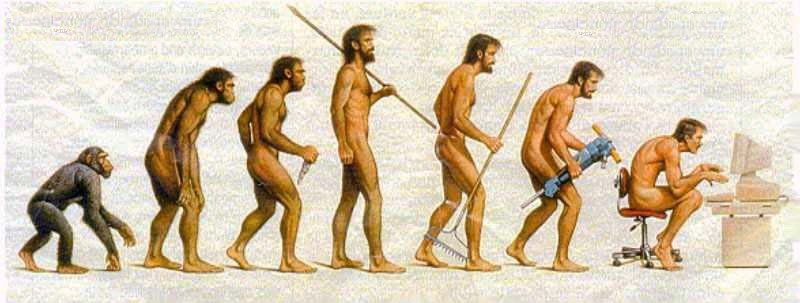
We don’t act on our values at work because we feel hopeless, that the odds are staked against us, that nothing we can do will matter. But are we right about that?
Resignation affects our paying jobs—how we retreat from our priorities in our workplaces—as well as the jobs we do in our communities (say, to support a local institution) or at home (as a caregiver). Since everyone else is only concerned about himself or herself, then maybe that’s all I should be worried about too. Am I right that my occasional impulses to be more open and generous are pipedreams that can never be realized?
A survey taken by the Common Cause organization in the UK in 2016 challenges both what we think about other peoples’ selfishness (as opposed to ther generosity) and the sense of resignation that quickly follows in us. The accompanying report also discusses how we decide on what we value more and value less. It’s not just the convictions that we’re born with. Our priorities are also influenced by what we think other people and the social institutions that we identify with value. It works in the other direction too, with our values and how we demonstrate them influencing these others too. Our values take form and get applied because of a complex back-and-forth.
Think of it as a three-way conversation. But you need to participate in that conversation to have an influence, and Common Cause discovered that your influence is probably far greater than you think it is.
Common Cause UK initiated the survey because, as an organization, it was concerned about the lack of public support for social and environmental changes it was seeking. Its leaders understood that values drive change and wanted a better understanding than it had already about citizen priorities. Those conducting the survey were surprised enough by the amount of common ground they discovered that they went on to propose ways that individuals and organizations (including businesses, non-profits and governments) can begin to overcome the current gridlock.
Here is a link to the survey report (“the Survey”), which I think you’ll find as interesting as I did.
This is the question I brought to it: Is where you “make a living,” try to make a difference in your community and create a better life at home primarily about your “selfish values” or is your work really driven by far more generous impulses? What the Survey shows–in a one-two punch–is how acting on the so-callled “compassionate values” that play a lead role for most of us is likely to be far more consequential than you know.
We Have More Common Ground Than We Think
The Survey defines “selfish values” as wealth, social recognition, social status, prestige, control over others, authority, conformity, preserving public image, popularity, influencing others and ambition. It defines “compassionate” values as broadmindedness, a world of beauty or at peace, equality, protecting the environment, social justice, helpfulness, forgiveness, honesty and responsibility.
The Survey found that nearly 75% of participants placed greater importance on compassionate values–with Survey protocols correcting for the bias that participants were seeking to cast themselves in a better light by downplaying the importance they attach to selfish values. Even more striking was the Survey’s finding that 77% of participants believed that other people were primarily driven by selfish values. The truth is that a large majority of people (three-quarters of the population) believe that their generous motivations are more important and drive them far more often than their selfish ones.
Because people always influence one another when it comes to values, and the priorities of social institutions are shaped in a similar conversation, the Survey’s authors make several recommendations to activate our generous commitments, including these.
Since people are discouraged from declaring their priorities when they believe that most other people disagree with them, accurate information—like that provided here—will not only counter pessimism but also fuel optimism. When it comes to your values, what other people value matter almost as much as what you value “in your heart of hearts”. But it goes beyond your optimism or pessimism. In the course of our work, we can probe other people’s motivations (instead of assuming them) to strengthen our social connections, while also finding enough courage in “the strength of our numbers” to act more generously.
The consequence for you and for others is similar to when you voice your dissent in a group, a back-and-forth exchange that was discussed here a couple of months ago. When you speak from your convictions and are clear about the changes you seek, it enables others to clarify their commitments, even when they’re different from yours, and for the group to move forward. Acting on your commitments also conveys your beliefs about how social institutions (from community groups to the federal government) should operate.
The entire time that our values are at stake, we’re watching and subtly influencing one another, so it’s important to read the social landscape around us correctly. The Survey’s writers ask:
How is a person’s perception of others’ values shaped? A person’s perceptions will be influenced by both what fellow citizens say is important to them and what he or she infers about fellow citizens from the way that they behave.
For this reason, it is very significant if people don’t always bear testimony to the values that they hold to be most important – either in what they say, or what they do…[P]eople often speak and act as though they attach particular importance to values that are actually relatively unimportant to them.
In other words, co-workers, neighbors and even family members may only seem to be acting selfishly. To discover their generous impulses, you may need to watch them more closely or simply ask what drives them in the work that they do.
Your actions and others’s actions speak louder than words to social institutions too. An institution like the US Supreme Court is always “noticing” how the American people are expressing themselves as decision-makers, voters and consumers. Because the men and women who guide these institutions are influenced by the public’s values, our acting generously impacts institutional commitments as well.
Our Commonality Goes Deeper Than Our Political Divides

In America today, it may seem like politics mirrors the debate between generous and selfish values, but it doesn’t.
While Common Cause’s objectives in conducting the Survey were to advance liberal-sounding social and environmental objectives, this Survey isn’t about the liberal versus conservative divide in either the UK or in America, even though one of the Survey’s compassionate values (“social justice”) may have political connotations here that it lacks in Britain. The polarity that the Survey identifies between compassionate and selfish values is different than the struggle between political left and political right.
The Survey’s results plumb something that goes deeper than the “political values” in those debates. That’s because “political values” both here and across the Atlantic are little more than buzzwords aimed at mobilizing one’s political base: red flags like “global warming,” “taxes,” “abortion” and “diversity” that have a high emotional charge but little if any ethical content on the political surface. When you plumb beneath the surface however, most conservatives as well as most liberals are committed to the health of the planet, to paying for our social institutions, to the quality of every person’s life, and to the inherent worth of people who are different from them. Three quarters of us!
Why not start with the values that unite us rather than the buzzwords that divide us?
Consistent with the Survey’s findings about compassionate and selfish values, most peoples’ convictions extend far deeper than will ever be apparent during bouts of political gamesmanship. Moreover, those on their “political sides” are often voting, marching and lobbying for the lesser of two evils (as in the last American election), which further obscures their true convictions. Even when the ethical imperatives that drive a block of voters are reasonably well-known, too little time and effort has gone into identifying the common ground that could unite them with those “on the other side” and break the current gridlock.
In this regard, the Survey provides a glimpse into the majority’s convictions when asked about two key values that are prime motivators for tackling our problems today. A broad-based preference for generous over selfish values provides at least some of the foundation for a collective way forward—and all of us would be seizing an opportunity by taking it. Given the Survey’s findings, the influence that your actions will have on others and on our institutions will likely be considerable and certainly more than you currently think if you’re as misguided as the Survey participants about the selfishness driving others.
Rebecca Solnit whose “Hope in the Dark” was a topic here last week provides a surprising postscript to this argument in her book. Above all, Solnit values grassroots solutions to problems over ideology-driven policies imposed from above. It’s a propensity that has made her flexible when it comes to finding common ground for her activism. In other words, she’s had to go deeper. As Solnit observes:
I’ve often wondered what alliances and affinities might arise without those badges of right and left. For example, the recent American militia movements were patriarchal, nostalgic, nationalistic, gun-happy and full of weird fantasies about the UN, but they had something in common with us: they prized the local and feared its erasure by the transnational. The guys drilling with guns might have been too weird to be our allies, but they were just the frothy foam on a big wave of alienation, suspicion and fear from people watching their livelihoods and their communities go down the tubes. What could have happened if we could have spoken directly to the people in that wave, if we could have found common ground, if we could have made our position neither right nor left but truly grassroots? What would have happened if we had given them an alternate version of how local power was being sapped, by whom, and what they might do about it? We need them, we need a broad base, we need a style that speaks to far more people than the left has lately been able to speak to and for.
The value that could have driven this unity was the protection of livelihoods and communities (a compassionate value) rather than sacrificing them on the altar of globalism and trade (an ultimately selfish one).
Solnit’s desire for environmentalists and ranchers in the American West to make common cause is similarly astute. Again, she attacks top-down ideological convictions that will never succeed because they always seem to miss the human costs at ground level.
Environmentalists had worked with a purist paradigm of untouched versus ravaged nature. Working with ranchers opened up a middle way [for her], one in which categories were porous, humans have a place in the landscape—in working landscapes and not just white-collar vacation landscapes—and activism isn’t necessarily oppositional.
This time, the common ground that Solnit saw was how environmentalists and ranchers both love and depend on the land, how each cherish different things about it, and how neither wants to harm it (another compassionate value) while the other side’s interest in the land is largely motivated by how much can be taken from it (a selfish one).
One day, the generous values we hold in common will help us to solve the problems that confront us. I’d argue that we should start acting on our generosity today.
Note: This post was adapted from my September 9, 2018 newsletter





